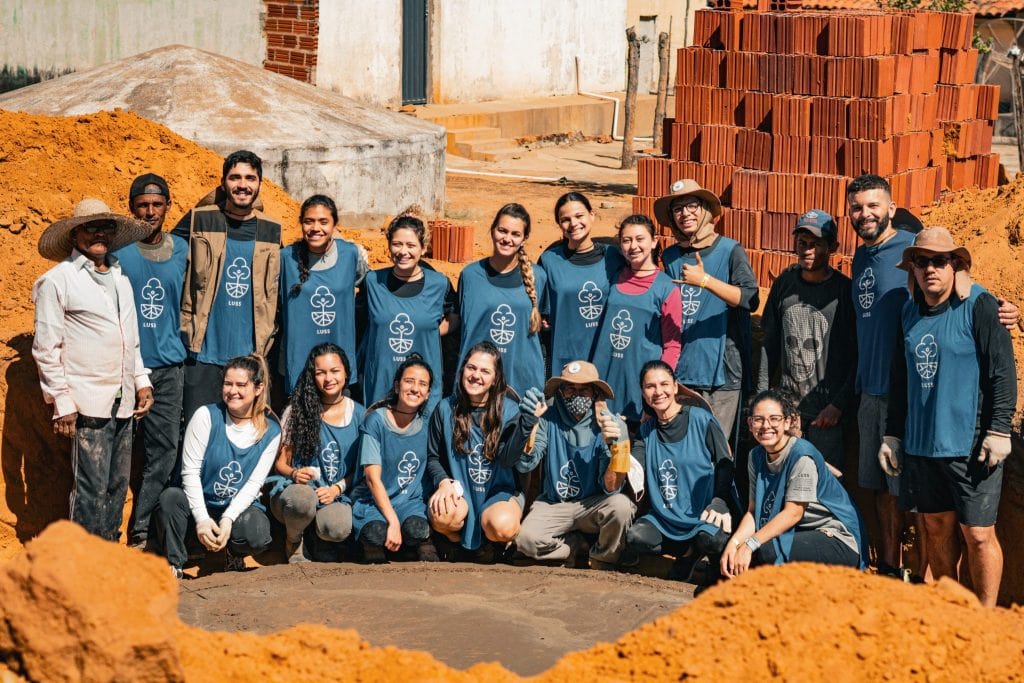
A group of student volunteers from Brazil Adventist University (UNASP) decided to make the most of their Southern Hemisphere winter vacation during the first half of July 2022 to build water cisterns in communities of the semi-arid state of Piauí. The project is part of a more comprehensive push to find ways of improving the quality of life of the population.
The project carried out by the Adventist school students in Brazil is an initiative of the school’s Volunteer and Mission Center, which worked in partnership with the LUSS Institute. The institute is a Piauí organization that supports development in the area, working to improve access to water, food security, and economic development for thousands of families in vulnerable situations, organizers explained.
This is the second time students have engaged with those communities. In January 2022, they had their first contact with residents in the area. And then from July 3 to 13, 15 student volunteers traveled to Piauí to work on the project.
The LUSS Institute has suggested that community intervention in the area should come in three stages. The first is the construction of water cisterns. The second is a focus on food security through the development of family or community gardens. Finally, it recommends economic development initiatives, working on activities that may generate income for the community residents. Currently, UNASP students are focusing on the first stage, organizers reported.
According to Anna Carolina Freitas, who led the mission project in Piauí in January, local communities suffer from the high costs involved in surviving in the semi-arid region. “Everything is very expensive,” she said. “There is a whole industry based on this need [for water], and those who are poorer are taken advantage of as a result of the current drought.”
Connecting with God and Neighbor
Piauí Mission is successful because it is focuses on developing bonds of trust that lead to a healthy relationship with the local population, Freitas said. “This sense of continuity is of utmost importance, because you demonstrate that you are taking your work seriously, and that what you promise, you fulfill,” she said.
The initiative was full of memorable moments, participants said. For student Heloisa Rocha, her most special moment was to meet some of the residents. “We created a very friendly bond during the days we worked there, and we left with remarkable stories to treasure.”
The key point of Piauí Mission is to keep developing a relationship with God and neighbor, organizers said. It is also showing the love of God to every person contacted in that mission field, revealing the transformation God is capable of providing.
“During the week, we discussed the fruit of the Spirit described in the Bible in Galatians,” Rocha said. “We were challenged to somehow live out that fruit in our daily experience.”
Student Mayra Munhoz said she never imagined that she would feel so attached to the community the volunteer team came to serve. As a student with a TV and radio major, her primary goal was to take photos for an audiovisual production, Munhoz explained. However, after a few days, she found that the mission focus was the most important part of the initiative.
“Everyone should take part in a mission project, especially in one like Piauí Mission,” Munhoz said. “I can’t even put into words what I lived there.”
The original version of this story was posted on the South American Division Portuguese-language news site.